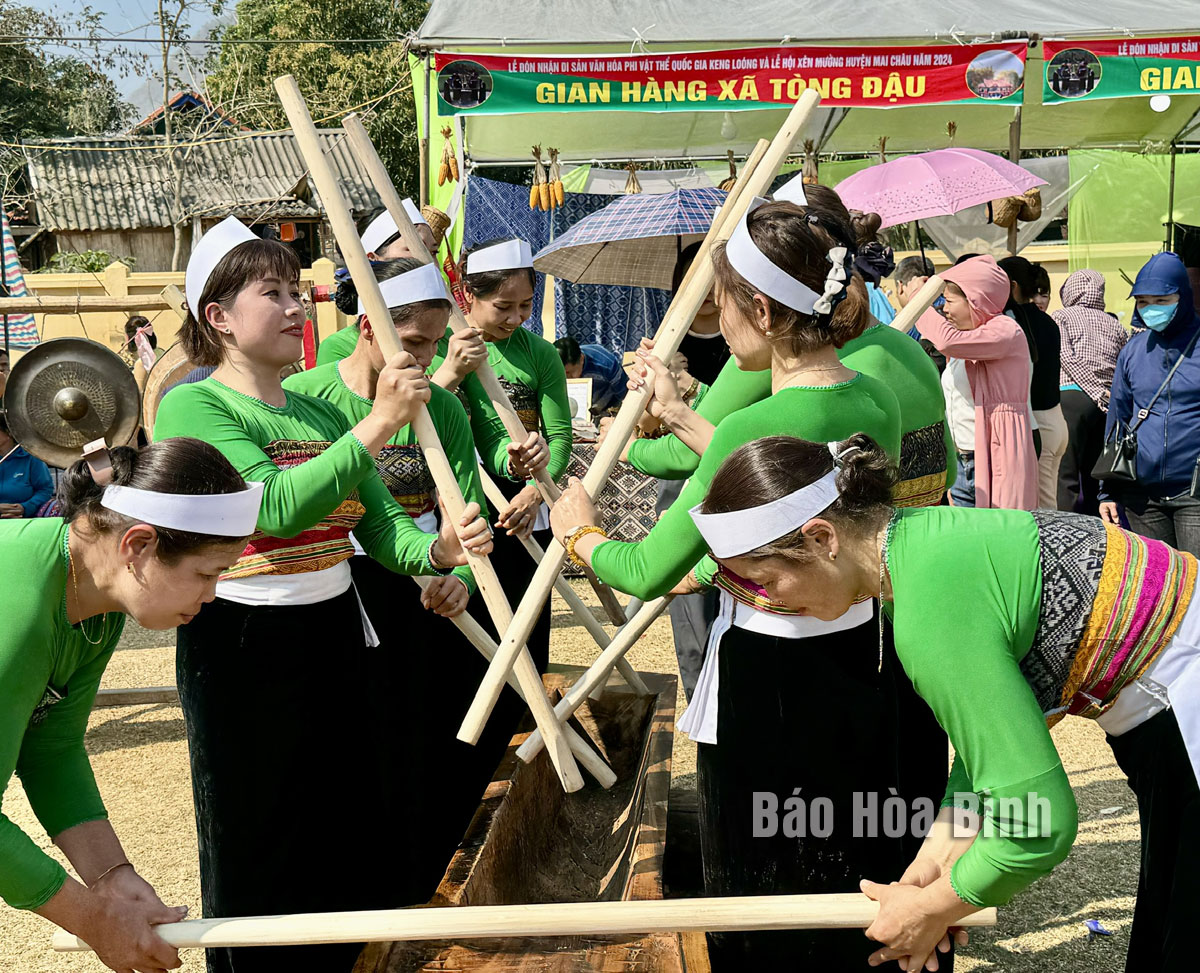



Residents of Tong Dau commune showcase the Keng Loong ritual at Xen Muong festival.
The Xen Muong festival is held annually in spring in Chieng Chau commune, considered the first capital and the origin of the Thai people who migrated from Lao Cai’s Bac Ha to Mai Chau in the 13th century. Through historical upheavals, generations of Thai tribal leaders have played a significant role alongside the population in cultivating and establishing villages and hamlets.
From the early hours, the Bon village shrine in Chieng Chau commune saw a bustling crowd of locals and tourists offering incense. Prior to this, ritual masters conducted solemn ceremonies, inviting village elders and envoys to partake in the festivities, receiving heartfelt offerings from the villagers. The ritual praised the patriotic spirit, expressing profound reverence and gratitude to the ancestors, seeking favourable weather and national prosperity, ensuring abundance for all.
Vice Chairman of the Mai Chau district People’s Committee Hoang Duc Minh said Xen Muong festival is a cherished folk tradition and cultural practice deeply ingrained in the local community. Through organising the festival, the aim is to honour the cultural identity of the ethnic community, and promote and introduce the history, cultural and tourism potential, contributing to developing a healthy cultural and spiritual life, and fostering a joyful and vibrant atmosphere at the onset of the Year.
In addition to the captivating Keng loong performances, the festival atmosphere was further enlivened by a variety of communal activities, including folk costume contests and cultural exchanges, culinary competitions, and traditional ethnic sports tournaments. The event attracted thousands of domestic and international tourists. Nguyen Hai Quang, a tourist from Hanoi, enthusiastically shared: "I look forward to returning to Mai Chau to experience more of its traditional beauty and the wonderful cultural heritage that the locals are diligently preserving and promoting".